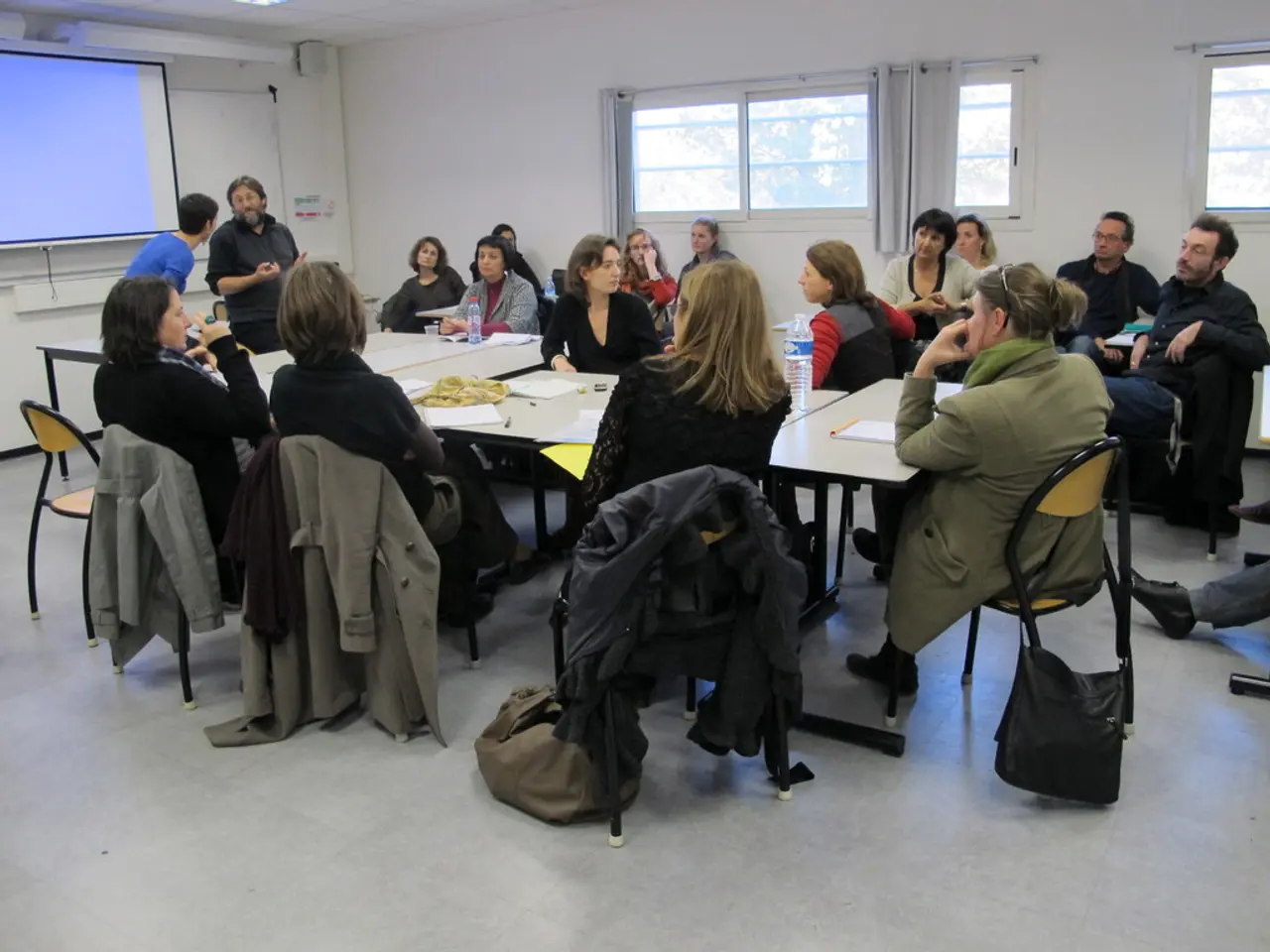Strategies for Managing Being the Lone Friend in Social Circles
In social settings, tokenism can be a challenging experience for members of BIPOC, LGBTQIA+, disabled, or neurodiverse communities. Tokenism often involves superficial inclusion without meaningful influence, where individuals are included mainly for appearance or optics rather than real participation.
Recognizing tokenism is crucial in navigating these situations. It's essential to acknowledge when inclusion feels superficial or when your presence is treated as symbolic rather than substantive. This awareness is the first step towards understanding and coping with the emotional and psychological burdens associated with tokenism and structural marginalization.
Coping with tokenism requires self-validation and supportive networks. Building community and support by connecting with others who share similar experiences can be incredibly helpful. This connection can validate your experiences and provide a platform to share coping strategies, especially when you feel isolated.
Practicing self-care amid cultural labor is also vital. Code-switching, or altering appearance, language, or behavior to fit in, can be exhausting, especially in a token role. Being mindful of the emotional toll from codeswitching or managing perceptions and finding ways to recharge and protect your well-being are essential for maintaining resilience.
Authentic expression is another key aspect of coping with tokenism. Where possible, asserting your identity in ways that feel authentic can help counteract pressures to conform to dominant norms. This assertion can lead to a more genuine connection with others and a deeper understanding of your own identity.
Seeking or creating safe, inclusive spaces is another crucial step in coping with tokenism. These environments offer genuine inclusion and respect, not just token presence. Organizations can support marginalized individuals by promoting transparency, empathy, and accountability to dismantle structural stigmatization that contributes to tokenism.
Feeling like a token friend can lead to feelings of exhaustion, people-pleasing, and invisibility. It's important to limit emotional labor where possible, giving yourself permission to step back when needed. Setting boundaries and communicating needs can help protect peace in relationships.
Connecting with support groups, mentors, or therapists can provide valuable help in dealing with feelings of being a token friend. Online therapy can be a first step towards finding the relationships you crave in life.
It's essential to remember that your cultural background may be treated as a novelty by friends, and you deserve to have real friendships that honor your identity, not ones that exploit and use you. Tokenism can cause anxiety, depression, low self-esteem, grief, trauma, and more, according to studies. Healing from tokenism means finding a space and circle where you feel valued as a whole person.
Joining cultural organizations, disability advocacy groups, queer spaces, or online communities can offer mutual care, respect, understanding, and value. These spaces provide a safe haven where you can express your true self without fear of judgment or exploitation.
In conclusion, recognizing tokenism and focusing on self-validation and supportive networks help in coping with these effects effectively. It's important to remember that your identity should be valued for who you are as a person, not just for what you represent.
- Online therapy can be a valuable resource for processing feelings of being a token friend, such as anxiety, depression, low self-esteem, grief, and trauma.
- Building community and support by connecting with others who share similar experiences can help validate your emotions and provide coping strategies when coping with the emotional burdens of tokenism and marginalization.
- Authentic expression may help counteract pressures to conform to dominant norms, leading to more genuine connections and a deeper understanding of one's own identity.
- Seeking or creating safe, inclusive spaces can offer genuine inclusion, transparency, empathy, and accountability, dismantling structural stigmatization that contributes to tokenism.
- Healing from tokenism means finding a space and circle where you feel valued as a whole person, which can be found in cultural organizations, disability advocacy groups, queer spaces, online communities, or through personal growth, education-and-self-development, and mental-health focused resources in health-and-wellness and lifestyle circles.




